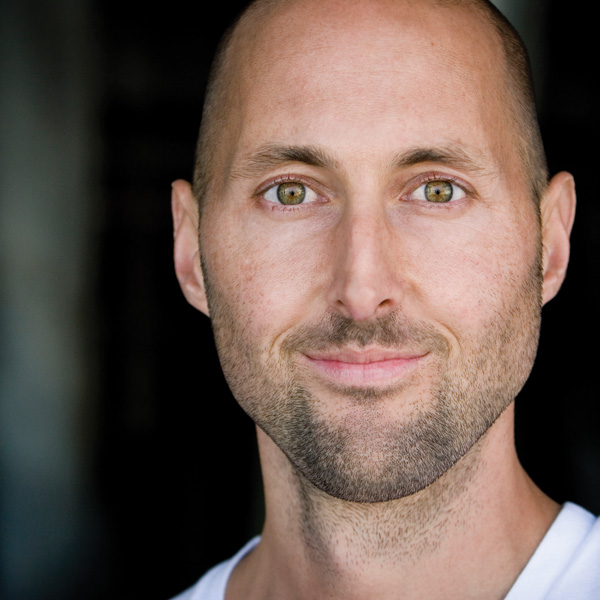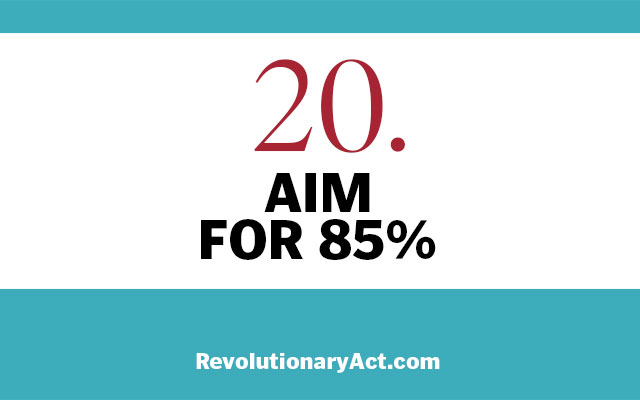In a world that conditions us to obsess about outcomes while encouraging us to multitask rather than focus on a single goal, it’s easy to undervalue the importance of practice.
Practice is the key to true inner peace and contentment. By concentrating on specific tasks rather than spending our energy worrying about future outcomes or harping on our past “mistakes,” we’re able to be more focused and more present.
In The Practicing Mind, pianist Thomas Sterner brilliantly explains how cultivating discipline and focus through practice helps us create a frictionless path to achieving our goals — and experience the joy that comes as a result.
Let’s jump in and explore what it means to practice and how we can shift our perspective to view practice, not perfection, as the ultimate goal.
From Learning to Practicing
One way to move into focusing on the process rather than the result is to understand the difference between “practice” and “learning.”
“The word ‘practice’ implies the presence of awareness and will,” Sterner explains. “The word ‘learning’ does not. When we practice something, we are involved in the deliberate repetition of a process with the intention of reaching a specific goal. The words ‘deliberate’ and ‘intention’ are key here because they define the difference between actively practicing something and passively learning it.”
Learning is wonderful, but practice is a bit different. Practice involves setting an intention and being deliberate. It is the process of picking a goal and choosing to continually apply steady effort to reach it.
Focus on the Work
Despite his steady effort to become an accomplished musician, Sterner notes that it was playing golf that really helped him understand the dynamics of practice.
While working on his swing, he began to notice that an attachment to results (which we can’t control) rather than to the process (which we can control) is what causes us to feel perpetually discontented.
This is really the essence of the whole book: “When you let go of your attachment to the object you desire and make your desire the experience of staying focused on working toward that object, you fulfill that desire in every minute that you remain patient with your circumstances. There is no reason not to be patient. There is no effort, no ‘trying to be patient’ here. Patience is just a natural outgrowth of your shifted perspective.
“This shift in perspective is very small and subtle on the one hand, but it has enormous freeing power. No task seems too large to undertake. Your confidence goes way up, as does your patience with yourself. You are always achieving your goal, and there are no mistakes or time limits to create stress.”
In other words, when we focus our attention only on a desired outcome, we’ll experience stress, anxiety, lack of presence, and diminished performance.
But when our primary desire is to stay focused on the process of working toward a goal, we’ll experience presence, engagement, and increased performance. This makes it much more likely we will achieve the outcome we desire with “frictionless ease.”
It’s a subtle, but vital, shift to use our goals as rudders — occasionally checking in to make sure we’re on course — and focus our energy on the here and now of our practicing minds rather than on our wandering minds that are always looking ahead.
Practice Mindfully
In order to enhance our ability to home in on the benefits of practice, we need to exercise our minds.
Like many great teachers, Sterner believes that meditation is one of the most effective ways to shift our attention, free us from the confines of our ego and its attachments, and fine-tune our presence.
“Though there are certainly a number of ways to accomplish [freeing ourselves from the confines of ego], the most effective method for spontaneously and effortlessly creating this alignment is meditation,” he writes.
But Sterner also provides another way to rock it, explaining that we can create a practicing mind by calling in the “DOC” — do, observe, and correct.
Here’s how he explains the technique:
“If, for example, you feel you tend to worry too much, then try to apply DOC to your actions. When you notice yourself fretting over something, you have accomplished the do portion. Now observe the behavior that you want to change. In your observation of yourself worrying, you separate yourself from the act of worrying.
“Now realize that the emotions you are experiencing have no effect on the problem over which you’re fretting. Release yourself from the emotions as best as you can — that is the correction portion.”
When you’re feeling off your game, the first step is to do something. It can be an action as simple as noticing a behavior.
Once you’ve parsed the problem, observe it like a good instructor — objectively and without judgment or emotion. Check in and ask yourself if the behavior is working well or if you need to adjust some things to get back on track.
Finally, correct what’s not working. Again, do this without emotion — other than perhaps some enthusiasm for realizing you’re cultivating the mojo of a practicing mind!
Don’t postpone feeling joy until you’ve reached your goals or fulfilled your dream. Learn to enjoy the process and you’ll open yourself up to the rewards available every step along the way.
Watch a Summary of The Practicing Mind
Optimal Living 101
Explore more profound insights and practical wisdom from leading thinkers by diving into our Optimal Living 101 series.
More About the Author of The Practicing Mind
A concert-piano technician and rebuilder, Sterner spent more than 25 years preparing instruments for world-class pianists and symphony musicians. His occupation enabled him to witness firsthand the level of art afforded to those with a disciplined mind. An accomplished musician himself, Sterner lives in Delaware. He has produced a radio show about the practicing mind and teaches his techniques to businesspeople and athletes. Learn more at www.thepracticingmind.com.





This Post Has 0 Comments